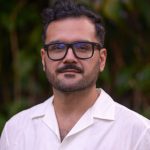
FORESTS & PEOPLE
FORESTS & PEOPLE
CIFOR-ICRAF at IUFRO 2024
23-29 June 2024, Stockholm, SwedenCan REDD+ safeguards ‘do better’ for Indigenous Peoples and local communities? Perspectives from comparative research in the DRC, Indonesia and Peru
Safeguards for the UNFCCC’s REDD+ mechanism arose in response to concerns voiced by forest-dependent communities over its potential to infringe upon their rights and territories. Since then, several institutions have also developed voluntary standards for carbon markets, in addition to safeguards guidelines adopted by multilateral funding institutions. Across these standards and guidelines, safeguards are conceptualized and articulated in different ways: as bulwarks against the impacts of interventions (“do no harm”); as means to achieve sustainable development outcomes (“do good”); or as mechanisms to catalyse the transformation of forest-dependent communities (“do better”).
It is urgent to clarify and understand the role of safeguards as the climate crises prompts interest on the part of countries and corporations in ‘nature-based solutions’ to meet their emissions reduction targets and commitments to biodiversity. This influx of investments in tropical forests can bolster sustainable development objectives, but also poses risks to communities, including the creation of perverse incentives and the deepening of existing social and economic inequities.
This paper will present the results of comparative fieldwork on the design and implementation of REDD+ safeguards in the DRC, Indonesia and Peru to understand when safeguards work, for whom, and why. We found that while safeguards have become a mainstay of REDD+ discourse and practice, there is considerable variation in their underlying objectives, the ways in which they are formulated, and the extent and effectiveness of their implementation. Thinking through safeguards, we will present a typology to understand their potential for change, how nature-based solutions may re-engage with the men and women of IPs and LCs and their rights and justice concerns, and synthesised factors to enable initiative to support and protect those rights.













